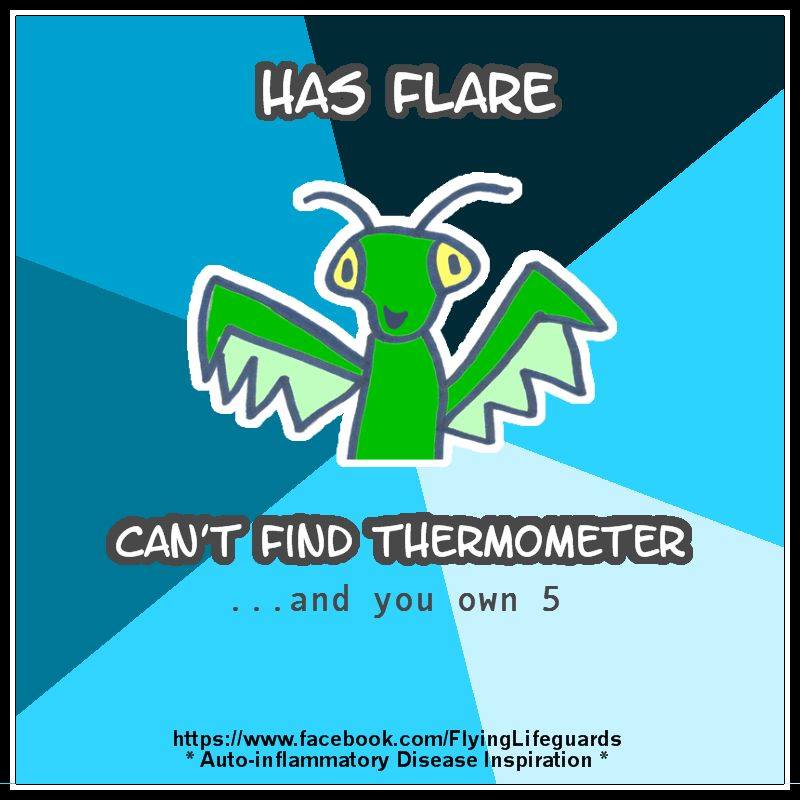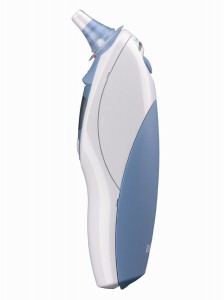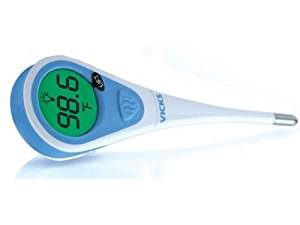 With most any of the fever syndromes, you need a good thermometer, or two in case you misplace one. These ear, temporal, and oral thermometers are some of the most recommended by patients and parents dealing with auotinflammatory diseases.
With most any of the fever syndromes, you need a good thermometer, or two in case you misplace one. These ear, temporal, and oral thermometers are some of the most recommended by patients and parents dealing with auotinflammatory diseases.
 Best Ear Thermometer – The Braun
Best Ear Thermometer – The Braun
Using an ear thermometer is the easiest way to take a temperature, especially a child’s. It’s quick and you can take your child’s temperature when they are sleeping without waking them up.
The Braun ear thermometer does happen to be a consistent top seller on Amazon, recommended by parents of kids with fever syndromes, and is the brand of ear thermometer used by many doctors’ offices and hospitals.
When placed in the ear properly, a green light will flash. However, I have found this feature to not be very reliable. You can place the thermometer on a child’s belly, head, or big toe, get it flash green, and take a temperature. (Yes there is some game playing in our house when a temperature check is needed.) If your child wiggles and squirms too much while you are trying to take his temperature, the thermometer will error out. If you point it towards the nose while in the ear, it gives a good reading. To get a consistent reading, you want to position the ear thermometer the same direction every time you use it. Since you get a lot of practice taking temperatures when dealing with a systemic autoinflammatory disorder, positioning an ear thermometer becomes second nature.
Pros of the Braun Ear Thermometer:
- Takes a temperature in just a few seconds.
- Stores several previous temperatures in the memory. Great for when you need to log temperatures and can’t get to it immediately.
- Batteries last a long time. Even with daily use, they rarely need replacing.
- Durable and will work for several years.
 Best Temporal Thermometer – The Exergen
Best Temporal Thermometer – The Exergen
The Exergen is another Amazon best seller with high reviews and is recommended by fever syndrome patients. It does take some practice to get the technique down, but like the ear thermometer, it soon becomes second nature. You should read the instructions carefully and even watch the videos on the Exergen website to ensure you are using the thermometer properly. With proper use, this thermometer has been shown to be highly accurate. However, incorrect use will not give you accurate or consistent readings. The major con to using this thermometer is your child must be sitting very still. If your child is squirming, you won’t be able to hit all the temporal spots correctly.
Pros of the Exergen Temporal Thermometer:
- It does not need probe covers like the ear thermometer does. The probe is made of antimicrobial material. Cleaning with alcohol between patients is recommended.
- Can use on a sleeping child without waking.
- Long battery life.
- Lasts several years.
 Best Digital Oral/Axillary/Rectal Thermometer
Best Digital Oral/Axillary/Rectal Thermometer
If you want the traditional oral, axillary or rectal thermometer, most any digital one will be accurate and consistent in its readings, although most agreed they liked the Vick’s digital thermometer best. The cons to using one of these is that they take longer, usually 60 seconds, to take a reading and your child has to be awake. However, they are cheap, reliable, and you don’t have to have any special technique to use them properly.
There are some that are called “quick reading” thermometers, but these can sometimes be more prone to inaccuracies, especially if you have a hard time getting the thermometer positioned correctly. Also, there are some flexible and soft tip thermometers on the market that may be more comfortable for children.
To learn more about taking temperatures, click here.
* Top photo from The Flying Lifeguards.
*Updated July 2017




